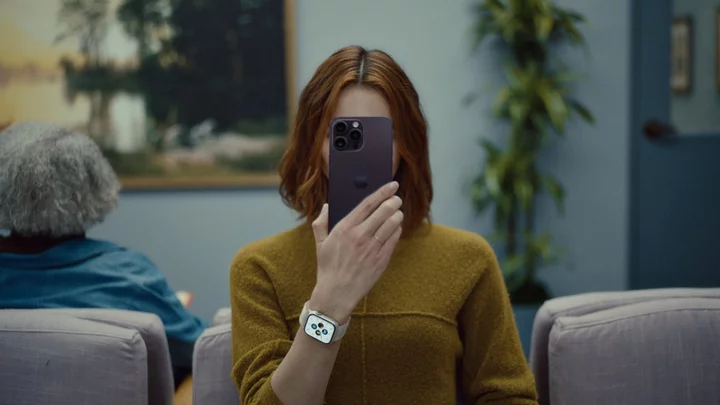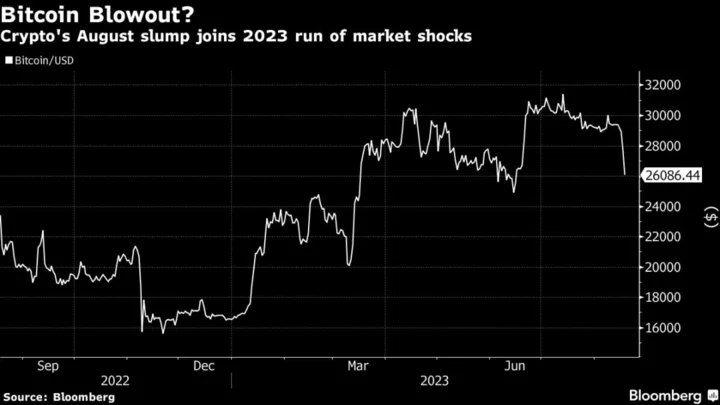Apple has launched a new campaign highlighting the importance of keeping health data private – and the dangers of not doing so.
The ads look to highlight iPhone features that Apple says ensure that it is able to collect data on its users, but not cause them embarrassment or threats by allowing other people to get hold of it.
It does so by depicting a doctors waiting room in which the various health complaints of patients are broadcast to everyone, and suggests that people who are not sufficiently protecting their privacy may accidentally be doing the same on the internet.
Lauren Cheung, a doctor and senior manager on Apple’s clinical team, told The Independent that the campaign grew out of Apple’s commitment to the “three core principles throughout all of our work on health: actionability, scientific validation, and privacy”. That means ensuring that the data collected is useful, and that it is “based in science” to ensure that it is accurate, she said – but also that it is protected.
“First, there’s probably nothing more sensitive than health data,” she said, “so it should always be a priority to protect it.
“Second, we believe our users should expect the same confidentiality from their technology as they do from their doctor. I’m a physician myself, and I know just how sensitive some conversations are; my patients are telling me information that sometimes they’ve never told anyone else.”
The campaign will come in the form of the new TV ad – which is voiced by actor Jane Lynch and directed by Craig Gillespie, the director of I, Tony and Cruella – as well as billboards in 24 regions around the world, Apple said. But Apple is also publishing a white paper online that highlights the ways that Apple protects health data on the iPhone and other products.
That includes encrypting all of the data that is stored within the Health app, apart from the Medical ID that is available to people who find a phone and gives important information that might be used to treat its owner. It also means that data in the Health app can only be shared with other apps when owners give their explicit permission.
That sharing does mean that third-party developers are able to get access to people’s data, and so those users are not only trusting Apple but also other companies. But Apple stressed that those developers are nonetheless subject to rules that try to keep that data safe.
That includes the “granular control that users have over sharing their health data”, said Katie Skinner, head of privacy engineering at Apple. That gives users the option not only to choose who they are sharing health information with, but also which bits of their health information they intend to share.
The same granular choice is also present when Apple conducts studies in collaboration with different organisations, which have already worked to gather information that helps research on topics such as heart health and hearing levels. Users can choose what they share with those researchers and Apple is not told whether people have done so.
“Additionally, any third-party app that reads or writes health data must comply with our terms in the developer agreement and our App Store guidelines”, which includes rules that require that the data is only used for health and fitness purposes. That requires for instance that it is not used for advertising purposes or sold on to other companies who might do the same.
If third-party apps do not comply with those rules, then they can be kicked out of the App Store. Apple also has an app review process that is intended to ensure that any apps comply before they are made available.
Ms Skinner also said that a member of the privacy team works on every new health feature, which “really means that they’re designed with privacy in mind”. “Apple believes privacy is a fundamental human right, and so we’ve built privacy protections into each one of our products and services,” she said.
Apple has run similar privacy campaigns in the past, highlighting for example its work to protect users’ browsing information and to stop it being sold through data brokers. It did not point to any specific incident that had led it to focus on health data this time around, but said that customers were particularly focused on the security of their health data.
“I think we're proud of the great health story we have for privacy,” said Ms Skinner. “Privacy is important across the board, but we know users believe that health data is really sensitive.”
Promoting the privacy of Apple’s health services also ensures that people are able to trust them, said Dr Cheung, ensuring that people feel comfortable with using their devices to track their health.
“We know that health data is sensitive – it’s one of the most sensitive pieces of information you can have,” she said. “And we do really feel like it is important for users to trust her devices the same way that they would trust their doctors.
“We want to support our users in understanding that the same applies to their health information on our devices.”
Apple’s launch of the campaign came just days ahead of its annual Worldwide Developers Conference event, where it shows off new software updates for all of its platforms. That is likely to include new changes for the Apple Watch and its WatchOS operating system, which might include new updates to the health and fitness tools that are central to Apple’s marketing of the wearable.
Read MoreApple is making a ‘mixed reality’ headset. Here’s what that future might look like
Montana TikTok ban ‘unconstitutional’ and ‘impossible to enforce’
Apple and Samsung use AI to make phones more accessible for disabled people
Apple releases its first transparent product in years
New iPhone feature can recreate your voice perfectly after just 15 minutes
75% of Irish data watchdog’s GDPR decisions since 2018 overruled – report









